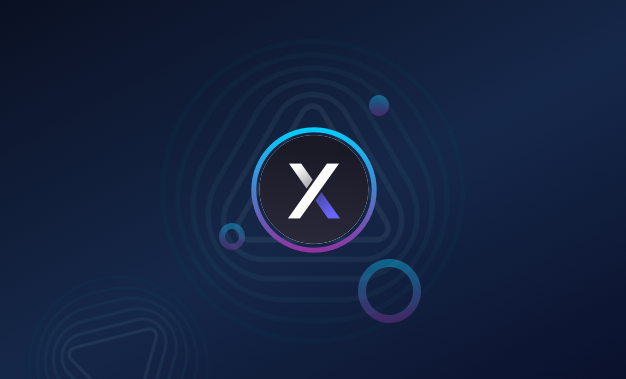-
 Bitcoin
Bitcoin $97,126.0652
2.56% -
 Ethereum
Ethereum $1,823.5318
2.64% -
 Tether USDt
Tether USDt $1.0001
0.02% -
 XRP
XRP $2.1318
0.63% -
 BNB
BNB $601.7237
0.50% -
 Solana
Solana $146.0494
1.59% -
 USDC
USDC $1.0000
0.00% -
 Dogecoin
Dogecoin $0.1711
2.10% -
 Cardano
Cardano $0.6674
1.85% -
 TRON
TRON $0.2465
0.71% -
 Sui
Sui $3.3274
2.03% -
 Chainlink
Chainlink $13.6318
1.28% -
 Avalanche
Avalanche $19.3593
-2.00% -
 UNUS SED LEO
UNUS SED LEO $8.6894
-0.25% -
 Stellar
Stellar $0.2587
0.83% -
 Shiba Inu
Shiba Inu $0.0...01276
1.70% -
 Toncoin
Toncoin $3.0106
-0.07% -
 Hedera
Hedera $0.1745
1.12% -
 Bitcoin Cash
Bitcoin Cash $364.4245
1.64% -
 Hyperliquid
Hyperliquid $21.0883
2.87% -
 Litecoin
Litecoin $89.2345
7.57% -
 Polkadot
Polkadot $3.9269
0.02% -
 Dai
Dai $1.0002
0.02% -
 Monero
Monero $285.3542
-0.32% -
 Bitget Token
Bitget Token $4.2801
-0.33% -
 Ethena USDe
Ethena USDe $1.0005
0.03% -
 Pi
Pi $0.5807
-0.15% -
 Pepe
Pepe $0.0...08114
3.32% -
 Bittensor
Bittensor $362.4362
-0.34% -
 OKB
OKB $51.0484
0.70%
what is dydx crypto
dYdX crypto, a decentralized derivatives exchange built on Ethereum, provides traders with perpetual contracts, low fees, and high liquidity, empowering them to trade futures contracts without expiration dates and with leverage.
Nov 05, 2024 at 10:08 pm

dYdX: A Comprehensive Guide to the Decentralized Derivatives Exchange
What is dYdX Crypto?
dYdX is a decentralized derivatives exchange built on the Ethereum blockchain. It allows users to trade perpetual contracts, a type of futures contract that has no expiration date, with leverage. This enables traders to take positions on the future price of an asset, such as Bitcoin or Ethereum.
How Does dYdX Crypto Work?
dYdX operates as a peer-to-peer (P2P) network, meaning that orders are matched directly between users without the involvement of a central exchange. Trades are executed using smart contracts, which ensure that orders are filled fairly and transparently.
dYdX utilizes a unique liquidity pool model to facilitate trades. Traders deposit funds into a shared pool, and the exchange matches buy and sell orders from within the pool. This ensures tight spreads and deep liquidity, even for large trades.
Features of dYdX Crypto
- Decentralized: Built on the Ethereum blockchain and controlled by smart contracts.
- Non-Custodial: Users maintain custody of their funds throughout the trading process.
- Perpetual Contracts: Trade futures contracts with no expiration date and leverage.
- Low Fees: Trading fees are significantly lower than centralized exchanges.
- High Liquidity: Liquidity pools provide ample liquidity for even large trades.
- Cross-Margining: Margin requirements are shared across all positions, allowing traders to use their funds more efficiently.
- Limit Orders: Users can place limit orders to buy or sell at specific prices.
Benefits of Using dYdX Crypto
- Security: Decentralized infrastructure and smart contract safeguards protect user funds.
- Transparency: All trades are recorded on the Ethereum blockchain, ensuring full transparency.
- Ownership: Traders maintain custody of their own funds and assets.
- Flexibility: Perpetual contracts and cross-margining provide greater trading flexibility.
- Efficiency: Low fees and deep liquidity enable cost-effective trading.
How to Get Started with dYdX Crypto
- Create an Ethereum Wallet: Install a non-custodial ETH wallet like MetaMask or Trust Wallet.
- Fund Your Wallet: Purchase ETH and transfer it to your wallet.
- Connect to dYdX: Visit dYdX.com and connect your wallet to the platform.
- Deposit Funds: Transfer ETH or tokens from your wallet to the dYdX liquidity pool.
- Start Trading: Place buy or sell orders for perpetual contracts.
Conclusion
dYdX is a leading decentralized derivatives exchange that offers a unique trading experience with high security, transparency, and efficiency. Its perpetual contracts, low fees, and deep liquidity make it an attractive option for traders seeking to leverage their positions in the fast-paced world of cryptocurrency derivatives.
Disclaimer:info@kdj.com
The information provided is not trading advice. kdj.com does not assume any responsibility for any investments made based on the information provided in this article. Cryptocurrencies are highly volatile and it is highly recommended that you invest with caution after thorough research!
If you believe that the content used on this website infringes your copyright, please contact us immediately (info@kdj.com) and we will delete it promptly.
- The institutional acceptance of crypto around the world has accelerated significantly recently, developing hand in hand with better-defined regulation.
- 2025-05-07 23:35:13
- XRP Has Evolved Beyond Payments, Now Powering Finance, Gaming, NFTs, and More
- 2025-05-07 23:35:13
- XRP Overtakes Bitcoin in Hourly Futures Liquidations
- 2025-05-07 23:30:12
- Agglayer Launches Pessimistic Proofs to Mainnet, Sparking Integrations Across Multiple Protocols
- 2025-05-07 23:30:12
- Binance Coin (BNB) Price Will Soar to $1,275 by the End of 2025, Says Standard Chartered
- 2025-05-07 23:25:12
- Pi (PI) Price Prediction: Will the Pi Coin Price Continue Climbing or Face Further Declines?
- 2025-05-07 23:25:12
Related knowledge

What is Ethereum’s Slashing mechanism and how to punish malicious behavior?
Feb 20,2025 at 03:08am
Key PointsOverview of slashingDifferent types of slashing in EthereumIncentives and consequences of slashingIdentifying and reporting slashed validatorsOngoing discussions and potential improvementsEthereum's Slashing Mechanism: Punishing Malicious BehaviorEthereum's slashing mechanism is an essential tool for ensuring network security and punishing mal...

What is the verifier node of Ethereum and how to become a verifier?
Feb 19,2025 at 06:00pm
The Verifier Node of Ethereum: A Comprehensive GuideKey Points:What is a Verifier Node?How to Become a Verifier NodeResponsibilities and Rewards of a Verifier NodeMinimum Requirements for Becoming a Verifier NodePotential Difficulties in Running a Verifier Node1. What is a Verifier Node?A Verifier Node is an independent entity on the Ethereum network th...

What is Ethereum’s staking, and how to participate and earn money?
Feb 19,2025 at 04:37pm
Key Points:Understanding Ethereum's Staking MechanismSteps to Participate in StakingBenefits and Rewards of StakingSecurity and Risk ConsiderationsTechnical Requirements and Hardware OptionsPotential Challenges and Troubleshooting TipsFAQs on Ethereum StakingWhat is Ethereum's Staking?Proof-of-Stake (PoS) is a consensus mechanism used in blockchain netw...

What is Ethereum’s DAO (Decentralized Autonomous Organization) and how does it work?
Feb 20,2025 at 03:12am
Key PointsDefinition and Structure of a DAOGovernance and Decision-Making in DAOsBenefits and Use Cases of DAOsChallenges and Limitations of DAOsWhat is Ethereum's DAO (Decentralized Autonomous Organization) and How Does It Work?Definition and Structure of a DAOA Decentralized Autonomous Organization (DAO) is an innovative governance and management fram...

What is Ethereum's multi-signature wallet and how to improve security?
Feb 20,2025 at 02:18pm
Key Points:Understanding the Concept of a Multi-Signature WalletBenefits and Drawbacks of Multisig WalletsRequirements for Setting Up a Multisig WalletStep-by-Step Guide to Generating a Multisig WalletImplementing Strategies for Enhanced Security1. Understanding the Concept of a Multi-Signature WalletA multi-signature (multisig) wallet in the Ethereum e...

What is Ethereum's oracle and how to provide data for smart contracts?
Feb 21,2025 at 01:30am
Key Points:Understanding the concept of oracles in EthereumExploring different types of oraclesDetailed guide on how to provide data for smart contractsAddressing potential challenges and considerationsWhat is Ethereum's Oracle?Oracles are crucial components in the Ethereum ecosystem, enabling smart contracts to access real-world data and off-chain even...

What is Ethereum’s Slashing mechanism and how to punish malicious behavior?
Feb 20,2025 at 03:08am
Key PointsOverview of slashingDifferent types of slashing in EthereumIncentives and consequences of slashingIdentifying and reporting slashed validatorsOngoing discussions and potential improvementsEthereum's Slashing Mechanism: Punishing Malicious BehaviorEthereum's slashing mechanism is an essential tool for ensuring network security and punishing mal...

What is the verifier node of Ethereum and how to become a verifier?
Feb 19,2025 at 06:00pm
The Verifier Node of Ethereum: A Comprehensive GuideKey Points:What is a Verifier Node?How to Become a Verifier NodeResponsibilities and Rewards of a Verifier NodeMinimum Requirements for Becoming a Verifier NodePotential Difficulties in Running a Verifier Node1. What is a Verifier Node?A Verifier Node is an independent entity on the Ethereum network th...

What is Ethereum’s staking, and how to participate and earn money?
Feb 19,2025 at 04:37pm
Key Points:Understanding Ethereum's Staking MechanismSteps to Participate in StakingBenefits and Rewards of StakingSecurity and Risk ConsiderationsTechnical Requirements and Hardware OptionsPotential Challenges and Troubleshooting TipsFAQs on Ethereum StakingWhat is Ethereum's Staking?Proof-of-Stake (PoS) is a consensus mechanism used in blockchain netw...

What is Ethereum’s DAO (Decentralized Autonomous Organization) and how does it work?
Feb 20,2025 at 03:12am
Key PointsDefinition and Structure of a DAOGovernance and Decision-Making in DAOsBenefits and Use Cases of DAOsChallenges and Limitations of DAOsWhat is Ethereum's DAO (Decentralized Autonomous Organization) and How Does It Work?Definition and Structure of a DAOA Decentralized Autonomous Organization (DAO) is an innovative governance and management fram...

What is Ethereum's multi-signature wallet and how to improve security?
Feb 20,2025 at 02:18pm
Key Points:Understanding the Concept of a Multi-Signature WalletBenefits and Drawbacks of Multisig WalletsRequirements for Setting Up a Multisig WalletStep-by-Step Guide to Generating a Multisig WalletImplementing Strategies for Enhanced Security1. Understanding the Concept of a Multi-Signature WalletA multi-signature (multisig) wallet in the Ethereum e...

What is Ethereum's oracle and how to provide data for smart contracts?
Feb 21,2025 at 01:30am
Key Points:Understanding the concept of oracles in EthereumExploring different types of oraclesDetailed guide on how to provide data for smart contractsAddressing potential challenges and considerationsWhat is Ethereum's Oracle?Oracles are crucial components in the Ethereum ecosystem, enabling smart contracts to access real-world data and off-chain even...
See all articles





















































































